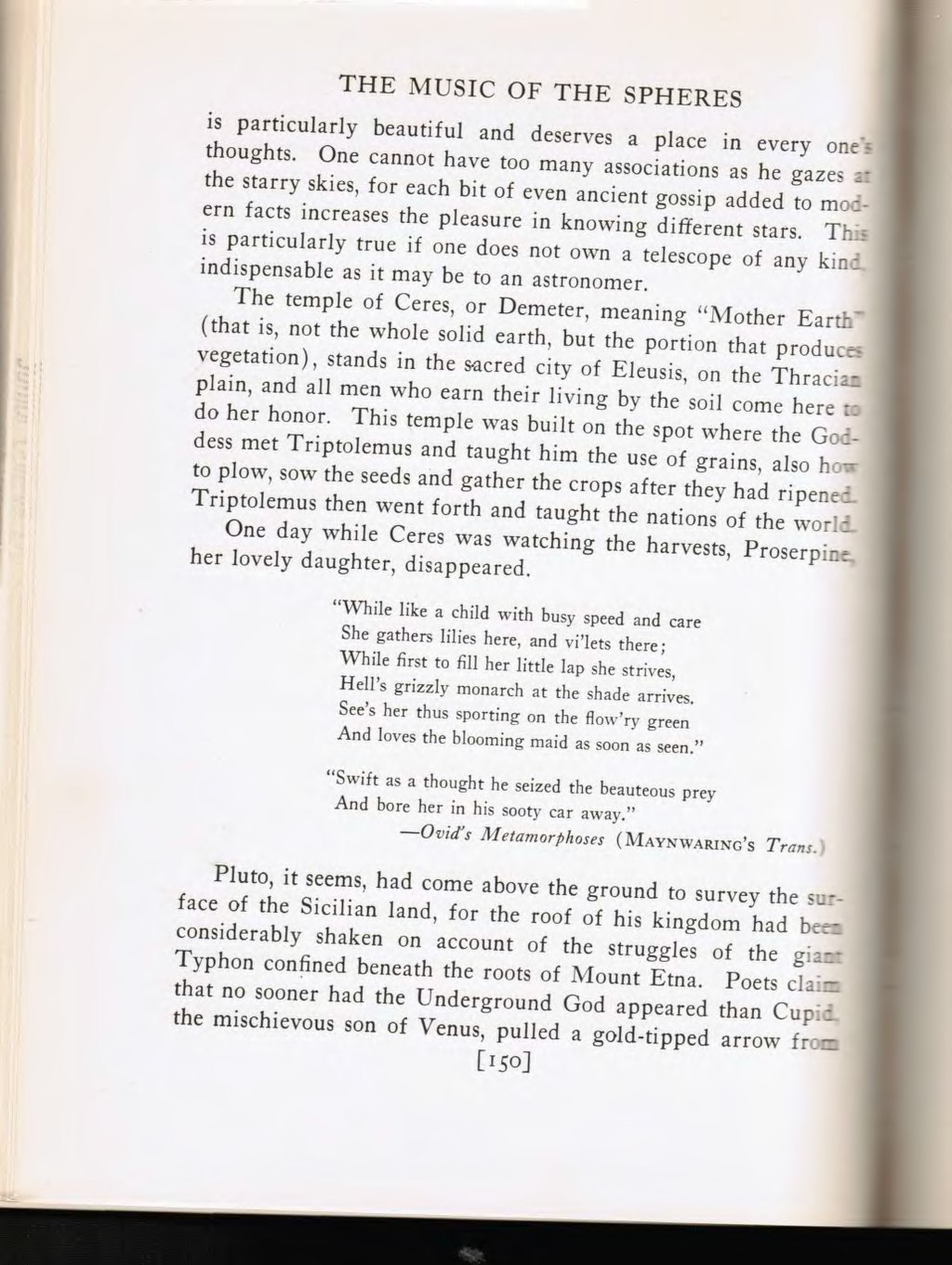is particularly beautiful and deserves a place in every one's thoughts. One cannot have too many associations as he gazes at the starry skies, for each bit of even ancient gossip added to modern facts increases the pleasure in knowing different stars. This is particularly true if one does not own a telescope of any kind, indispensable as it may be to an astronomer.
The temple of Ceres, or Demeter, meaning "Mother Earth" (that is, not the whole solid earth, but the portion that produces vegetation), stands in the sacred city of Eleusis, on the Thracian plain, and all men who earn their living by the soil come here to do her honor. This temple was built on the spot where the Goddess met Triptolemus and taught him the use of grains, also how to plow, sow the seeds and gather the crops after they had ripened. Triptolemus then went forth and taught the nations of the world.
One day while Ceres was watching the harvests, Proserpine, her lovely daughter, disappeared.
She gathers lilies here, and vi'lets there;
While first to fill her little lap she strives,
Hell's grizzly monarch at the shade arrives.
See's her thus sporting on the flow'ry green
And loves the blooming maid as soon as seen."
And bore her in his sooty car away."
—Ovid's Metamorphoses (Maynwaring's Trans.)
Pluto, it seems, had come above the ground to survey the surface of the Sicilian land, for the roof of his kingdom had been considerably shaken on account of the struggles of the giant Typhon confined beneath the roots of Mount Etna. Poets claim that no sooner had the Underground God appeared than Cupid, the mischievous son of Venus, pulled a gold-tipped arrow from
[150]
